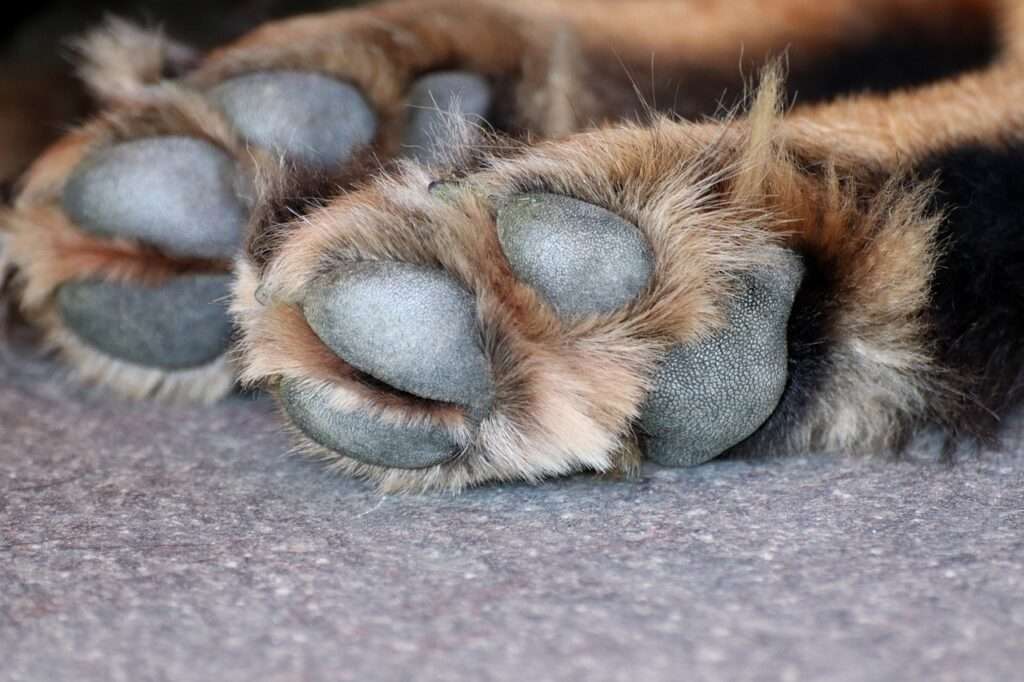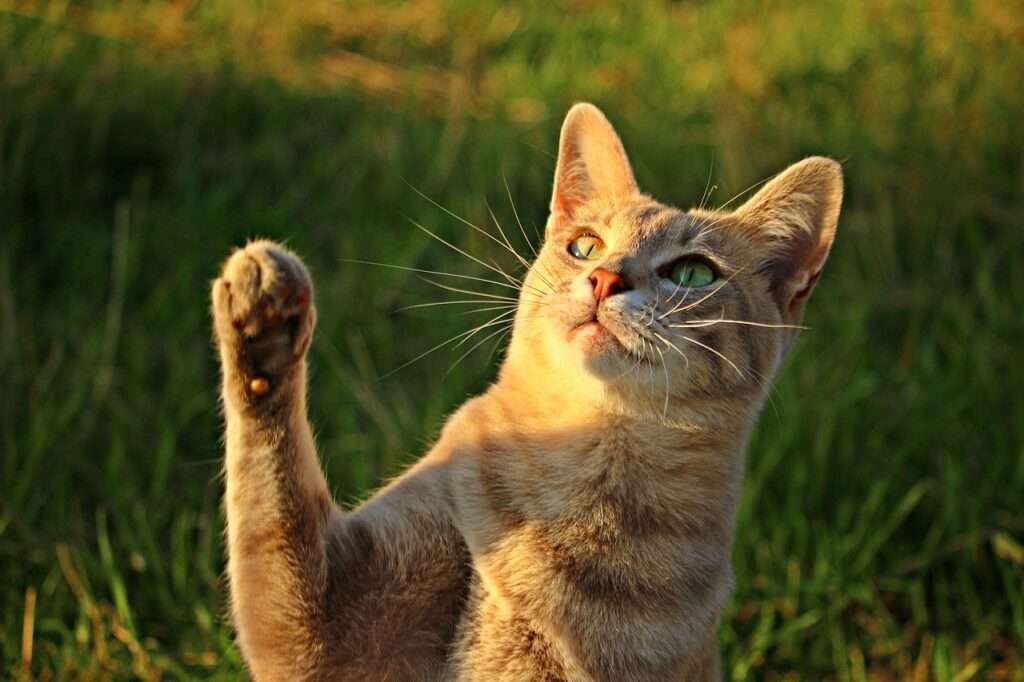Paw licking is a common behavior among dogs and cats, but have you ever wondered why your furry friend engages in this activity? Understanding the reasons behind paw licking can help pet parents better care for their pets’ health and well-being. In this comprehensive blog post, we will explore the various reasons dogs and cats lick their paws, the potential health concerns associated with this behavior, and tips for managing and preventing excessive paw licking.

Reasons Why Dogs Lick Their Paws
1. Grooming
Dogs are naturally inclined to groom themselves, and paw licking is a part of this process. Just like cats, dogs will lick their paws to clean off dirt, debris, and anything else that might be stuck to them. This is especially common after walks or outdoor activities.
2. Allergies
Allergies are a major cause of paw licking in dogs. Dogs can be allergic to a variety of things, including pollen, grass, food ingredients, and household chemicals. Allergic reactions often cause itching and irritation, leading dogs to lick their paws to find relief.
3. Injuries
If a dog has a cut, blister, or other injury on its paw, it may lick the area to soothe the pain and keep it clean. However, excessive licking can delay healing and sometimes worsen the injury, so it’s important to monitor this behavior closely.
4. Parasites
Fleas, ticks, and mites can cause significant discomfort and itching for dogs. If a dog is licking its paws excessively, it could be a sign of a parasite infestation. Regular vet check-ups and proper flea and tick prevention are crucial to keep these pests at bay.
5. Behavioral Issues
Dogs may lick their paws due to stress, anxiety, or boredom. This repetitive behavior can be a coping mechanism, similar to how humans might bite their nails or fidget. Identifying and addressing the root cause of stress or boredom can help reduce this behavior.
Reasons Why Cats Lick Their Paws
1. Grooming
Cats are meticulous groomers, and paw licking is a normal part of their grooming routine. They use their paws like washcloths, licking them and then using them to clean their face and body. This behavior is typically normal and healthy.

2. Injuries
Like dogs, cats may lick their paws if they have an injury. Cuts, scrapes, or foreign objects stuck in their paws can cause discomfort, prompting them to lick the area to alleviate the pain and clean the wound.
3. Allergies
Cats can also suffer from allergies, which may lead to itchy and irritated skin. Common allergens include certain foods, pollen, dust mites, and flea bites. If a cat is licking its paws excessively, it might be dealing with an allergic reaction.
4. Parasites
Fleas, mites, and other parasites can cause intense itching and irritation for cats, leading them to lick their paws in an attempt to find relief. Regular flea prevention and parasite control are essential to keep your cat comfortable and healthy.
5. Behavioral Issues
Stress, anxiety, and boredom can also cause cats to lick their paws excessively. Changes in their environment, lack of mental stimulation, or underlying anxiety can trigger this behavior. Providing a stable environment and plenty of enrichment can help reduce stress-related paw licking.

Health Concerns Associated with Paw Licking
While occasional paw licking is normal, excessive licking can lead to various health problems:
Infections Constant licking can break the skin and create open wounds, making it easier for bacteria to enter and cause infections. Signs of infection include redness, swelling, and discharge. If you notice these symptoms, consult your veterinarian.
Hot Spots Hot spots are painful, inflamed areas of the skin that can develop from excessive licking and scratching. They can quickly become serious if not treated promptly. Keeping the affected area clean and dry and seeking veterinary care is crucial for healing.
Hair Loss and Skin Irritation Repeated licking can cause hair loss and irritation on the paws. This can further aggravate the skin, leading to a vicious cycle of licking and irritation. If your pet is losing fur or developing sores on its paws, seek veterinary advice.
Tips for Managing and Preventing Excessive Paw Licking
Regular Grooming and Hygiene Keeping your pet’s paws clean and well-groomed can help prevent irritation and injury. Regularly check their paws for cuts, foreign objects, or signs of infection.
Allergy Management If your pet has allergies, work with your veterinarian to identify and manage the triggers. This may involve changes in diet, using hypoallergenic products, or medications to control symptoms.
Parasite Prevention Ensure your pet is on a regular flea and tick prevention program. This will help protect them from parasites that can cause itching and discomfort.
Provide Mental and Physical Stimulation Keeping your pet mentally and physically stimulated can reduce boredom and stress. Provide plenty of toys, exercise, and interactive activities to keep them engaged.
Consult Your Veterinarian If your pet is licking its paws excessively and you can’t determine the cause, consult your veterinarian. They can help diagnose the underlying issue and recommend appropriate treatment.
